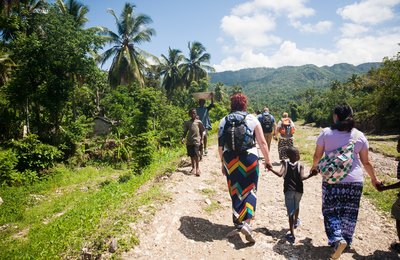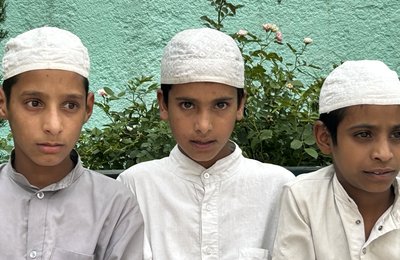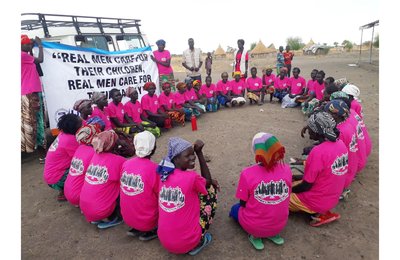 The Government House of Abkhazia, destroyed in the Abkhaz offensive on September 27, 1993. Image credit: [John]
The Government House of Abkhazia, destroyed in the Abkhaz offensive on September 27, 1993. Image credit: [John] Rethinking the trust and peacebuilding process after twenty-three years of the conflict, we are confronted with different narratives. These are exemplified by the claims of the Georgian sovereignty and territorial integrity on the one hand, and the statements of self-determination by the Abkhazians strongly encouraged by the official Kremlin on the other.
Self-determination is a paradox in the sense that Abkhazian economy is far from being self-sufficient and is heavily reliant on Russian financial assistance, which makes up a considerable part of the state budget. Between 2005-2013 such assistance amounted to RUB 17 billion ($260 million). Most was given as a loan, thus creating a trade-off between Russian and Abkhazian authorities.
Abkhazia with South Ossetia became a partially recognised republic in the Caucasus as the president of the Russian Federation Dmitry Medvedev declared its independence in the aftermath of the Russo-Georgian war in August 2008.
Taking into account that Abkhazia’s independence has been recognised only by Venezuela, Nicaragua and Nauru, it is obvious that the international community strongly supports Georgia’s territorial integrity and deems that both sides should ensure swift and secure repatriation of the IDPs in the Gali district, which was almost entirely populated by ethnic Georgians (Mingrelians) in the pre-war period.
Memory of history plays an important role in shaping the identity of modern-day Abkhazians, which not only causes the cultural alienation, but develops a feeling that the co-existence of Georgians and Abkhazians is no more possible. While part of such narrative is determined by externally driven factors, efforts to restore the neighbourly relations between two ethnically similar peoples are beginning to take place on the ground.
Peace from the grassroots
Grassroots organisations are beginning to bridge the gap between Abkhazians and Georgians. In 2005, non-governmental organisations working on the Georgian-Abkhazian conflict urged the former President of Georgia, Mikhail Saakashvili, to nurture a brand new approach. This would defy the outdated “Reconcile with me or I will punish you” approach which threatened that in the case of failing peaceful negotiations, resorting to military actions would have been justified.
With an active campaign by NGOs and civil society organisations, a new programme was worked out which aimed to create a package of benefits which would attract Abkhazians and contribute to normalising relations.
Since this initiative hundreds of Abkhazians have crossed the border in emergency to receive high quality treatment in Georgian hospitals for free. Several initiatives have taken place for the purpose of stabilising relations, some of them were profoundly controversial like the campaign “Sorry”, through which the Georgians apologised to their Abkhazian counterparts.
While this campaign was dismissed due to the claims that Georgians don’t really have anything to apologise for, now much of energy is engaged in the newly emerged social initiative of "МШИБЗИА" which means greeting in Abkhazian. The youth intend to collect 8000 photos on the social network bearing this word in order to emphasise that during 8000 days there has not been decent communication between Abkhazians and Georgians.
Georgian-Abkhazian relations are seemingly in stalemate, particularly following the de-facto independence proclaimed and supported by Moscow making it clear that the relationship is vastly affected by the external factors. Still, steps to rebuild trust and build peace by civil society should not be disregarded and in many cases can trigger initiatives undertaken by the government to bring Abkhazians and Georgians closer together.




